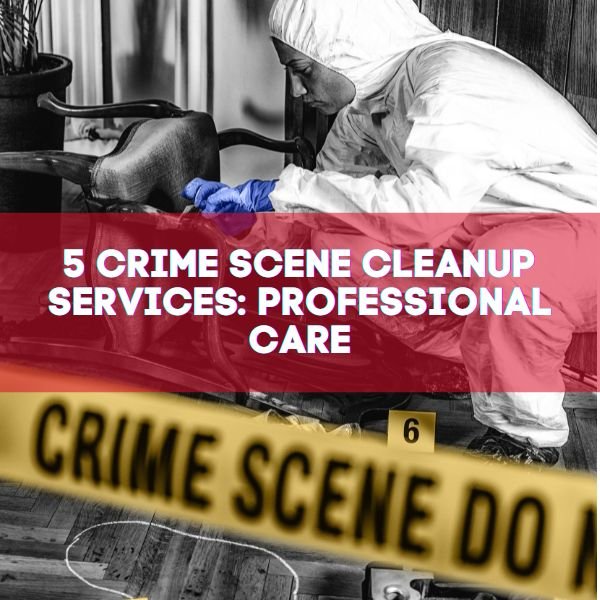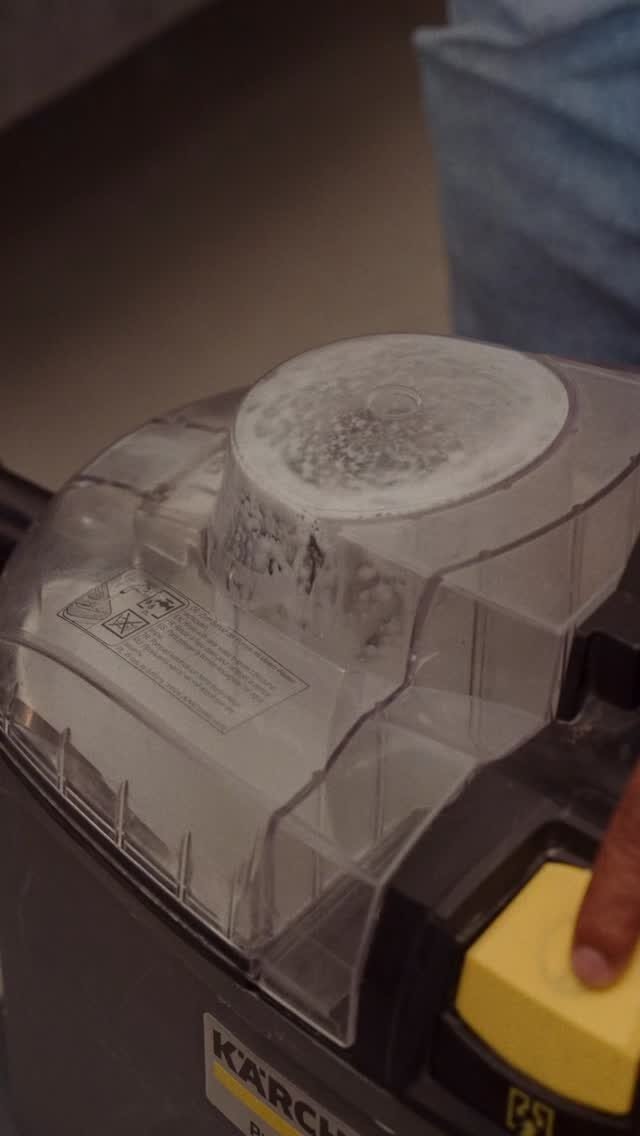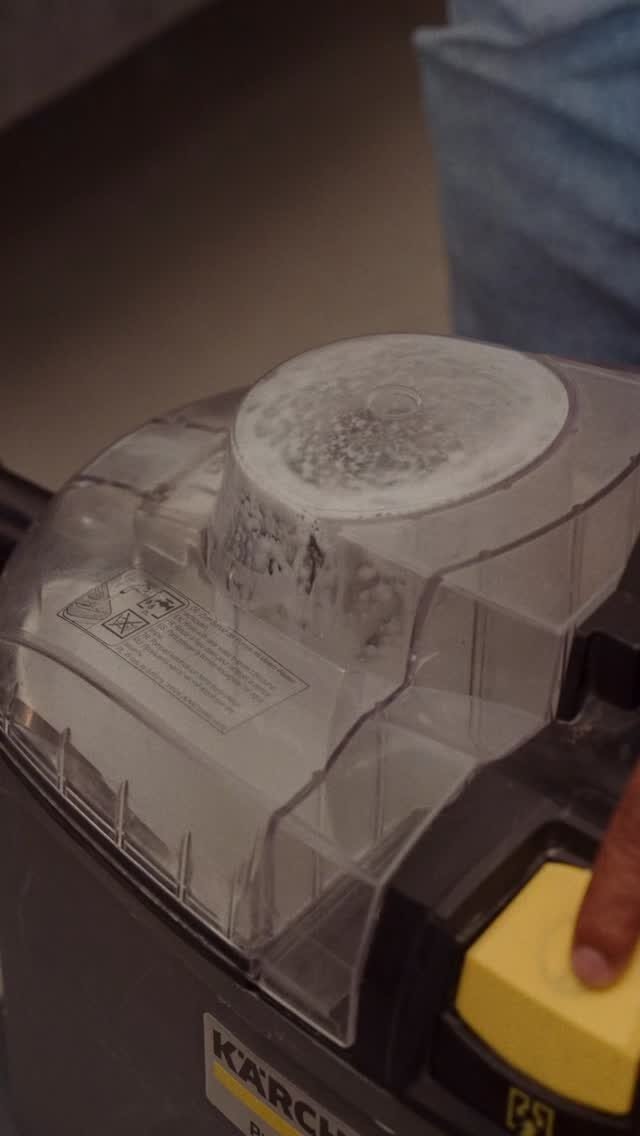Hello, dear readers! Today, we’re diving deep into the crucial world of crime scene cleaning services, a topic that, while unsettling, is an essential aspect of health and safety in our communities. Understanding the nuances and importance of professional care in such situations is not just about restoring order; it’s about compassionately handling the aftermath of events that leave a lasting impact. Let’s explore how expert cleaning can make a significant difference in these delicate circumstances.
Table of Contents
Toggle#1 Understanding Crime Scene Cleaning
Crime scene cleaning services are called upon after incidents that are both traumatic and delicate, ranging from burglaries to more severe events like homicides. Unlike regular cleaning tasks, crime scene cleanup is a specialized field that deals with removing the dangers of biohazardous materials, such as blood and bodily fluids, which can pose serious health risks if not properly handled. This specialized cleaning not only requires technical skills and knowledge about biohazards but also a profound sense of duty and respect for those going through difficult times.
The first step in crime scene cleaning is to ensure the safety of all involved. This involves the use of personal protective equipment (PPE), such as gloves, gowns, masks, and eye protection, to prevent direct contact with hazardous materials. The cleaners must then assess the scene to determine the extent of the cleanup, identifying all areas that have been contaminated. It’s a process that requires a meticulous approach, as biohazards can be invisible to the naked eye and may lurk in unsuspecting places.
Following the assessment, the actual cleaning process begins. This involves several stages, starting with the removal of biohazardous materials. Specialized equipment and chemicals are used to thoroughly clean and disinfect the area, ensuring no harmful residues are left behind. It’s crucial that this process is carried out with precision to restore the scene to a safe and non-hazardous state. The goal is not only to clean but to sanitize and deodorize the environment, making it safe for habitation once again.
An important part of crime scene cleaning is the proper disposal of biohazardous waste. This is not something that can simply be thrown into the regular trash. Crime scene cleaners must follow strict regulations for the disposal of such materials, using designated containers and disposal methods to ensure they do not pose a risk to others.
The complexity of crime scene cleaning extends beyond the physical cleanup. Cleaners often find themselves working in environments filled with emotional distress and may serve as a temporary support to those affected by the tragedy. This aspect of the job requires a level of empathy and understanding, as the presence of cleaners can be a stark reminder of the incident. Professional cleaners are trained to perform their tasks discreetly and compassionately, respecting the emotional state of those involved.
In summary, crime scene cleaning is a critical service that goes far beyond conventional cleaning. It involves a comprehensive approach that includes assessing the scene, removing biohazardous materials, cleaning, sanitizing, and deodorizing the area, and properly disposing of hazardous waste. This meticulous process ensures the safety and well-being of future occupants, making it an indispensable service in times of need. The role of a crime scene cleaner is not just as a technician but as a caretaker of health and safety, tasked with the sensitive responsibility of helping spaces and communities recover from traumatic events.
#2 Safety First: The Hazards of Crime Scene Cleanup
The hazards associated with crime scene cleanup are myriad, ranging from the obvious biological risks to less visible chemical dangers. The primary concern in these environments is the presence of biohazardous materials, such as blood, bodily fluids, and tissue, which can carry pathogens like HIV, hepatitis B, and hepatitis C. These biological hazards require crime scene cleaners to employ rigorous safety protocols to protect not only their health but also that of the returning occupants. The use of personal protective equipment (PPE), including respirators, gloves, and protective suits, is mandatory to minimize exposure to these harmful pathogens.
Beyond biological risks, crime scene cleaners often encounter chemical hazards. These can include tear gas residue, fingerprint powder, and chemicals used in the manufacturing of illicit drugs. Exposure to these substances can have immediate health effects, including respiratory issues, skin irritation, and eye damage, as well as long-term effects that may not be immediately apparent. To mitigate these risks, professionals must use proper ventilation techniques and chemical neutralizers to safely clean and restore the area.
The cleanup process also involves dealing with sharp objects and materials that can cause injury, such as broken glass or exposed nails. This adds a physical hazard to the already dangerous task, necessitating careful handling and disposal of such materials to prevent cuts, punctures, and infections.
Handling and disposing of hazardous materials are critical components of crime scene cleanup. Federal and local regulations dictate specific procedures for the packaging and disposal of biohazardous waste to ensure it does not pose a risk to the public or the environment. This process involves using certified biohazard bags and containers, which are then transported to appropriate facilities for treatment and disposal. The meticulous adherence to these regulations underscores the specialized nature of crime scene cleaning and the importance of professional expertise in ensuring public health and safety.
An often-overlooked aspect of crime scene cleanup is the emotional hazard. Workers are frequently exposed to traumatic scenes, which can have a profound psychological impact. Professional cleaners must be equipped with coping mechanisms and support systems to manage the emotional toll of their work. This is a critical component of their training, emphasizing the importance of mental health alongside physical safety.
In essence, the complexity of crime scene cleanup extends far beyond the visible mess. It encompasses a wide range of hazards that necessitate a specialized approach to ensure the safety of both the cleaners and the community. This multifaceted task requires not only a thorough understanding of the technical aspects of cleanup but also an awareness of the regulatory and emotional dimensions of the work. It is a profession that demands precision, dedication, and resilience, highlighting the critical role of crime scene cleaners in public health and safety.
#3 The Emotional and Psychological Aspect of Crime Scene Cleaning
The emotional and psychological aspects of crime scene cleaning often go unnoticed by the general public, yet they play a critical role in the recovery process for families and communities affected by traumatic events. Crime scene cleaners step into scenarios that most people would find unimaginable, where the aftermath of a tragedy needs to be confronted directly and meticulously cleaned. This unique position places cleaners not only as technicians but also as a crucial part of the emotional healing process for those impacted.
When crime scene cleaners enter a scene, they are acutely aware of the tragedy that has unfolded. This awareness necessitates a delicate balance between performing their duties efficiently and offering a sense of compassion and empathy towards the affected individuals. Their work often allows families to avoid the traumatic experience of cleaning the remnants of a loved one’s passing, providing a valuable service that goes beyond mere cleaning. This act of service can significantly aid in the grieving process, offering a semblance of normalcy and peace in a time of chaos.
Moreover, the presence of crime scene cleaners often marks the beginning of closure for families and communities. Once the physical reminders of the event are removed, and the area is restored to its pre-incident state, it can help those affected to start the healing process. This psychological shift is crucial in moving forward, making the role of the crime scene cleaner pivotal in emotional recovery. Their work, therefore, is not just about cleaning; it’s about setting the stage for healing and recovery.
However, the impact of crime scenes on cleaners themselves should not be overlooked. Facing the aftermath of tragic events on a regular basis can take a toll on their mental health. Professional cleaners are trained to handle these emotional challenges, but the importance of providing them with support and resources cannot be understated. Companies often provide counseling and mental health services to help their employees cope with the hardships of the job, emphasizing the need for emotional resilience in this field.
The interaction between crime scene cleaners and those affected by the incidents can also be a moment of human connection in the midst of tragedy. Cleaners often find themselves in positions where they offer comfort, whether through their actions or words, to grieving families. This aspect of the job highlights the profound human element involved in crime scene cleaning, where compassion and professionalism intersect to provide a crucial service during some of life’s most challenging moments.
In summary, the role of crime scene cleaners extends far beyond the removal of hazardous materials and the cleaning of physical spaces. They play a vital role in the emotional and psychological healing of individuals and communities affected by tragedy. Their work allows families to begin the process of recovery by providing a clean, safe environment free from the reminders of the incident. This unique intersection of technical skill, emotional strength, and compassion underscores the invaluable service crime scene cleaners provide, making them unsung heroes in the aftermath of tragedy.
#4 Advanced Techniques and Technologies in Crime Scene Cleaning
Advanced techniques and technologies play a pivotal role in the evolution of crime scene cleaning, making the process more efficient, safe, and thorough. The integration of these advancements is not just about enhancing cleaning methods; it’s about elevating the standards of safety and hygiene, ensuring that every trace of biological and chemical residue is eradicated. This commitment to excellence is what sets professional crime scene cleaners apart, showcasing their dedication to restoring environments to a safe and livable condition.
One of the cornerstone technologies in crime scene cleaning is the use of specialized cleaning agents and disinfectants designed to combat a wide range of biological hazards. These agents are formulated to break down bloodborne pathogens and other biohazards at the molecular level, ensuring a level of cleanliness that regular household cleaners cannot achieve. The selection of these chemicals is critical, as it must be effective against the pathogens present while being safe for use in homes and public spaces.
In addition to chemical solutions, crime scene cleaners employ advanced equipment to aid in the cleaning process. High-efficiency particulate air (HEPA) vacuum systems are used to capture microscopic particles that traditional vacuums would recirculate back into the environment. For odors that are particularly challenging to remove, ozone generators and hydroxyl generators are utilized. These machines alter the chemical composition of odors at the molecular level, effectively neutralizing them and restoring the air quality of the affected area.
Thermal foggers represent another technological advancement in the field, dispersing a fine mist of deodorizing agents throughout the area to penetrate and neutralize odors that have absorbed into surfaces. This method ensures that no residual smells linger, which is crucial for the emotional well-being of those returning to the space.
Furthermore, the adoption of digital documentation and project management tools has streamlined the cleanup process, enabling teams to work more efficiently and transparently. These tools facilitate better communication with clients, providing them with updates and allowing for a more coordinated approach to managing the cleanup operation.
The complexity of crime scene cleanup also necessitates the use of personal protective equipment (PPE) that goes beyond standard offerings. Recent advancements in PPE technology have led to the development of lighter, more breathable materials that still provide the necessary barrier against pathogens and chemicals. This innovation not only ensures the safety of the cleaners but also improves their comfort and mobility, allowing them to perform their tasks with greater efficiency.
Incorporating advanced techniques and technologies into crime scene cleaning represents a significant leap forward in how these challenging situations are handled. By leveraging specialized cleaning agents, cutting-edge equipment, and innovative PPE, professionals can ensure that they are providing the safest and most effective service possible. This dedication to employing the best tools and methods available underscores the commitment of crime scene cleaners to not just meet but exceed health and safety standards, making a profound impact on the communities they serve.
#5 Choosing the Right Crime Scene Cleaning Service
Choosing the right crime scene cleaning service is paramount to ensuring that the aftermath of a traumatic event is handled with the utmost care, professionalism, and efficiency. The process involves more than just cleaning; it’s about restoring safety and peace of mind to those affected. As such, knowing what to look for in a crime scene cleaning company is essential. This involves several key considerations that can guide individuals and families through the challenging process of selecting a service that meets their needs.
Firstly, it’s crucial to assess the experience and credentials of the crime scene cleaning company. Companies with a long-standing presence in the industry are often more reliable, having dealt with a wide range of scenarios. Certifications from recognized bodies within the biohazard cleanup industry, such as the Institute of Inspection, Cleaning and Restoration Certification (IICRC), indicate that the company adheres to the highest standards of cleaning and professionalism. Potential clients should inquire about the training and certification of the technicians who will be performing the work, ensuring that they are equipped with the knowledge and skills necessary to handle biohazardous materials safely and effectively.
Insurance and compliance with local and federal regulations are also vital. A reputable crime scene cleaning service should have comprehensive liability insurance to protect both their clients and their employees. Compliance with Occupational Safety and Health Administration (OSHA) guidelines and other regulatory standards is essential to ensure that the cleanup process is performed safely and legally. These considerations safeguard clients from potential liabilities and ensure that the cleanup is conducted within the bounds of the law.
The use of advanced cleaning technologies and methodologies is another important factor. A company that employs the latest techniques and equipment demonstrates a commitment to providing the most effective and efficient service. This includes the use of specialized cleaning agents, personal protective equipment (PPE), and machines such as HEPA vacuum systems and ozone generators. Prospective clients should inquire about the tools and approaches the company uses to address various aspects of crime scene cleanup, from biohazard removal to odor neutralization.
Responsiveness and availability are critical in times of need. Crime scenes are unexpected and urgent situations that require immediate attention. A service that offers 24/7 availability shows a dedication to being there for their clients whenever they are needed. The ability to respond quickly and start the cleanup process as soon as possible is crucial in mitigating the impact of the incident and helping families begin the healing process sooner.
Lastly, empathy and discretion are qualities that cannot be overlooked. The nature of crime scene cleanup requires a level of sensitivity and understanding towards those who are grieving or in shock. A company that emphasizes compassionate service, respects the emotional state of their clients, and operates with discretion underscores their commitment to handling each situation with the dignity it deserves.
In conclusion, selecting the right crime scene cleaning service involves a comprehensive evaluation of the company’s experience, certifications, adherence to safety and legal standards, technological capabilities, responsiveness, and approach to client care. By carefully considering these factors, individuals and families can ensure that they choose a service that will handle the delicate task of crime scene cleanup with the professionalism, efficiency, and sensitivity it requires.
Why Bio On is Your Go-To Solution for Crime Scene Cleaning Service
Bio On stands as your go-to solution for crime scene cleanup because it embodies a blend of expertise, compassion, and cutting-edge methodologies. With a team of certified professionals who undergo rigorous training, Bio On ensures the highest standards of safety and efficiency. Adherence to OSHA guidelines and utilization of advanced cleaning technologies mean every job meets stringent health and safety protocols. The company’s 24/7 availability addresses the urgent nature of crime scene cleanup, offering prompt and reliable service. Moreover, Bio On’s commitment to handling each situation with empathy and discretion provides a supportive and respectful experience during difficult times. Choosing Bio On means entrusting your needs to a team that prioritizes your safety and well-being above all.
Conclusion
In summary, navigating the aftermath of a crime scene requires more than just cleaning; it demands professional care, sensitivity, and precision. With Bio On, individuals and communities receive comprehensive support through expert cleanup services that prioritize health, safety, and emotional well-being. The blend of technical excellence, swift responsiveness, and compassionate service sets Bio On apart as a leader in crime scene cleanup. For those facing the daunting task of recovery after a traumatic event, reaching out to Bio On offers a pathway to restoration and peace of mind. Encourage anyone in need to contact the Bio On team via the WhatsApp button for a free consultation, ensuring guidance and support are just a click away.





































